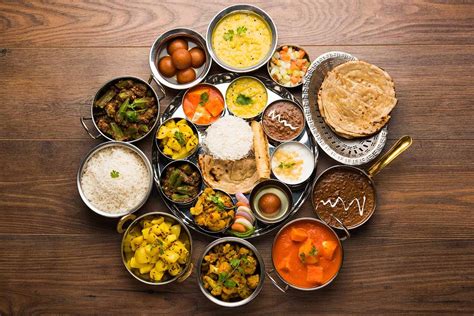The Vānaprastha Adventure, Installment 18

Here we continue our list of no-risk practical items that vānaprasthas or aspiring vānaprasthas can adopt.
Simplify your eating
In the Bhāgavatam we read that when kings like Pṛthu Mahārāja went to the forest they would live on roots and berries and leaves and so on. And again that’s an example we can’t follow.
But we can simplify our eating. We read in Śrīla Prabhupāda’s books that rich eating is for the gṛhasthas, not the sannyāsīs.1 Similarly, it’s also not for the vānaprasthas. When the vānaprasthas simplify their eating, that’s good for them on several counts.
Remember, the vānaprastha āśrama is accepted around the age of fifty. At this age, reducing one’s eating is generally healthy. And if you’re paunchy it’s healthy for sure. In America a disproportionate number of people, including devotees, are overweight, and that’s a health risk. So by simplified eating we reduce that risk.
Reduced eating also makes the mind more clear and the senses easier to control. When we eat food that’s rich and stimulating, the senses become more inclined to passionate life and harder to control. Or when we overeat we can just become dull and sluggish. Tā’ra madhye jhivā ati-, lobhamaya sudurmati.2 Of all the senses, the tongue is especially difficult to control—and essential to control. When the tongue is controlled, controlling the other senses becomes more easy.

The tongue has two functions—tasting and vibrating. So for the vibrating function we should chant Hare Krishna, and for the tasting function we can eat simple Kṛṣṇa prasada. If we’re accustomed to sometimes eating food not offered to Kṛṣṇa, that we should now change. Sometimes in gṛhastha life when we’re working we eat anything vegetarian. But now we should just stick to Kṛṣṇa-prasada. That simple vow will help us. Śrī Caitanya Mahāprabhu said,viṣayīra anna khāile duṣṭa haya mana: “When one eats food prepared by worldly people, one’s mind becomes wicked.” 3And Śrīla Prabhupāda wrote, “One should carefully avoid eating food offered by nondevotees. Indeed, a devotee should be very strict in not accepting food from a nondevotee, especially food prepared in restaurants or hotels or on airplanes.”4 As Śrīla Prabhupāda wrote, we should be “very strict” about this. But if somehow we haven’t been strict, now we should be.
Also, we should eat at scheduled times, not in the style of snack as you go. We should eat in a regulated way and eat simply. It’s also helpful to avoid eating at night.
In the Bhagavad-gītā (17.9) we read:
kaṭv-amla-lavaṇāty-uṣṇa-
tīkṣṇa-rūkṣa-vidāhinaḥ
āhārā rājasasyeṣṭā
duḥkha-śokāmaya-pradāḥ
“Foods that are too bitter, too sour, salty, hot, pungent, dry, and burning are dear to those in the mode of passion. Such foods cause distress, misery, and disease.”
Śrīla Prabhupāda mentions in one letter that such rich foods as halavā, kacaurīs, and rasagullā are included among foods in passion.5
Foods in passion get the taste buds all excited. And luxurious, passionate eating can stimulate the other senses as well. Śrīla Prabhupāda writes: “[S]ometimes it is found that an initiated person, in the name of prasāda, eats very luxurious foodstuffs. Due to his past sinful life he becomes attracted by Cupid and eats good food voraciously. It is clearly visible that when a neophyte in Kṛṣṇa consciousness eats too much, he falls down. Instead of being elevated to pure Kṛṣṇa consciousness, he becomes attracted by Cupid. The so-called brahmacārī becomes agitated by women, and the vānaprastha may again become captivated into having sex with his wife. Or he may begin to search out another wife. Due to some sentiment, he may give up his own wife and come into the association of devotees and a spiritual master, but due to his past sinful life he cannot stay. Instead of being elevated to Kṛṣṇa consciousness, he falls down, being attracted by Cupid, and takes to another wife for sex enjoyment.”6
What we want instead is calmness and moderation. We want to reduce the stimulation and eat food in the mode of goodness—food that’s nourishing, healthy, satisfying. That kind of eating helps make the senses peaceful.
āyuḥ-sattva-balārogya-
sukha-prīti-vivardhanāḥ
rasyāḥ snigdhāḥ sthirā hṛdyā
āhārāḥ sāttvika-priyāḥ
“Foods dear to those in the mode of goodness increase the duration of life, purify one’s existence, and give strength, health, happiness, and satisfaction. Such foods are juicy, fatty, wholesome, and pleasing to the heart.”7
I won’t tell you exactly what to eat and what not to eat. It’s up to you. You might want to go quite radically simple, or you might want to simplify your eating in a more modest way. But this is something we can do, and do progressively—more simple, more simple. That will help us be more healthy and peaceful and help us bring the senses under control.
Like many of the practices we want to adopt in the vānaprastha āśrama, eating less is something our bodies are asking us to do anyway. It fits the direction in which the body is going. Less eating, less passionate activity—this is all consistent with biology. People defy biology to try to enjoy into their old age, but if they were more in tune with nature (leave aside spirituality), they would follow these recommendations.
One practical point: Our eating habits may also have a lot to do with what we stock in our house. We eat what’s available and convenient. So if we want to change our eating, we can change what we stock.
Simplify sleeping
It is best to have regulated times for sleeping and to sleep only as much as needed. Both for health and for spiritual realization, regulated sleep is recommended. As Kṛṣṇa says in the Bhagavad-gītā(6:17):
yuktāhāra-vihārasya
yukta-ceṣṭasya karmasu
yukta-svapnāvabodhasya
yogo bhavati duḥkha-hā
“He who is regulated in his habits of eating, sleeping, recreation, and work can mitigate all pains by practicing the yoga system.”8
And we don’t need big beds. We can sleep on a simple bed, or a simple mat, or the floor. As we find in the Bhāgavatam (2.2.4):
satyāṁ kṣitau kiṁ kaśipoḥ prayāsair
bāhau svasiddhe hy upabarhaṇaiḥ kim
“When there are ample earthly flats to lie on, what is the necessity of cots and beds? When one can use his own arms, what is the necessity of a pillow?”
Śrīla Prabhupāda comments: “The so-called comforts of life are not actually helpful for progressive civilization; rather, they are detrimental to such progressive life. In the system of sanātana-dharma, of four divisions of social life and four orders of progressive realization, there are ample opportunities and sufficient directions for a happy termination of the progressive life, and the sincere followers are advised therein to accept a voluntary life of renunciation in order to achieve the desired goal of life.”
Making a point especially relevant for vānaprasthas, Śrīla Prabhupāda continues: “If one is not accustomed to abiding by the life of renunciation and self-abnegation from the beginning, one should try to get into the habit at a later stage of life, as recommended by Śrīla Śukadeva Gosvāmī, and that will help one to achieve the desired success.”
More no-risk steps
Our list of no-risk practical items that vānaprasthas or aspiring vānaprasthas can adopt will continue in the next installment.
Notes:
1 Cc. Madhya 3.70, purport.
2 Bhaktivinoda Ṭhākura, Gītāvalī (Prasāda Sevāya, Song 1, verse 1).
3 Cc. Ādi 12.50. The translation comes from Śrīla Prabhupāda’s purport to The Nectar of Instruction, verse 4.
4 Cc. Madhya 22.87, purport. In India the word hotel can refer to any commercial place that serves food, regardless of whether or not lodging is offered also.
5 Letter to Jadurani, May 19, 1971.
6 Bhāgavatam 4.26.13, purport.
7 Gītā 17.8.
8 By the way: One meaning of the word vihāra—here translated “recreation”—is “walking.” Śrīla Prabhupāda, of course, used to walk every day. And when asked, “What is recreation for a Kṛṣṇa conscious person?” he said, “Dancing. Come on, dance with us. Is it not recreation?”(Lecture, February 13, 1969, Los Angeles.)
This is part of a draft
This is an excerpt from a new book I have in the works—The Vānaprastha Adventure, a guide to retirement in spiritual life. While I’m working on it, I’ll be posting my draft here, in installments. I invite your comments, questions, and suggestions.

You must be logged in to post a comment.